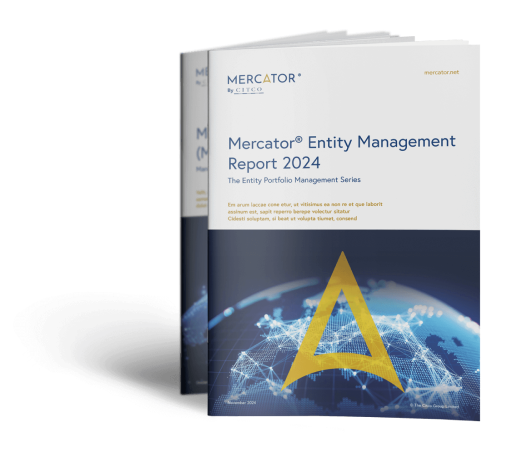The information contained in this document is marketing material and for informational purposes only. The information contained in this document is presented without any warranty or representation as to its accuracy or completeness and all implied representations or warranties of any kind are hereby disclaimed. Recipients of this document, whether clients or otherwise, should not act or refrain from acting on the basis of any information included in this document without seeking appropriate professional advice. The provision of the information contained in this document does not establish any express or implied duty or obligation between Citco and any recipient and neither Citco nor any of its shareholders, members, directors, principals or personnel shall be responsible or liable for results arising from the use or reliance of the information contained in this document including, without limitation, any loss (whether direct, indirect, in contract, tort or otherwise) arising from any decision made or action taken by any party in reliance upon the information contained in this document. © The Citco Group Limited, December 2024.
The EU Mobility Directive and implications for Germany, France and the Netherlands
Flexibility has become increasingly important for businesses in recent years amid the rise of geopolitical uncertainty, most recently with the war in Europe.
Regional security, social differences and changes to legal frameworks at a country-level are making it more important for businesses to be able to relocate to another location if required. Moving the main legal domicile of a company – known as cross-border mobility – has a number of implications, but new rules in Europe have sought to streamline the process.
In order to facilitate the transfer of assets and liabilities without requiring a company to be dissolved, the EU has implemented two directives (Directive (EU) 2019/2121 of the European Parliament and of the Council of 27 November 2019 amending Directive (EU) 2017/1132) both of which relate to cross-border conversions, mergers and divisions. The deadline for their adoption into national law was 31st January 2023.
While the new rules impact the whole of the EU, there are specific regions where these directives will have more significance because of the number of cross-border mobility cases they have.
Germany, followed by the Netherlands and France, are some of the EU countries with the highest number of cross-border mobility cases.
So what implications do the new rules have, and how will they specifically impact these three countries?
Key points from the Directive
Enhanced protection of third-party interests
A key tenet of the Directive is extended protection of all stakeholders to avoid potential abuse. Namely, the shareholders voting against cross-border division, conversion or merger have a right for adequate cash compensation for the disposition of their shares. Employees have a right to be informed and consulted before the common draft terms of the deal are decided. The creditors shall be provided with an adequate safeguard if the satisfaction of their claims isn’t met prior to the transaction.
Terms of ‘cross-border conversion’ and ‘cross-border division’
The new Directive introduces regulation of the cross-border conversion and division, meaning more areas are brought into scope, including where the company converts into a legal form of the destination Member State, as well as relocates its seat. Cross-border division, where either all assets and liabilities or part of them are transferred to two or more entities, is also now covered by the new Directive. However, this only applies to active limited liability companies.
Cross-border conversion and division specifics
There are several new conditions introduced, including drafting the terms of conversion or division, which must be published to all stakeholders. The company’s administrative or management body must prepare a report with legal and economic justifications, and an independent expert be engaged to review the proposals. There are new tweaks to the rules on when the general meeting can take place post relocation, and certificates are needed to show compliance with relevant legal authorities.
Germany, France and the Netherlands
In Germany, the terms and procedures on cross-border conversion/division have been added in full to the merger Act. However, Germany went beyond the cross-border division for the formation of a new entity, allowing cross-border division for admission provided that a certain threshold is fulfilled.
Should the court find abusive or fraudulent purposes in the transaction, then no value is added to the company and the seat remains in Germany. If the domestic conversion takes place within 4 years post the cross-border conversion, the rules to the previous cross-border conversion apply mutatis mutandis.
Negotiations on co-determination in an emerging company are already necessary if a participating company has employees equal to at least four fifths of the threshold value for corporate co-determination in a departure Member State.
France also adopted two legal acts; one of which modified the provisions of the Commercial Code related purely to national mergers, such as exemption from exchange of equity securities, the possibility of not transferring liabilities, and simplifying the partial transfer of assets for limited liability companies.
The Netherlands has prepared only the draft Act being reviewed. It’s expected that a two thirds majority will be needed at the general meeting resolving the merger, and that the Notary will be obliged to issue an additional certificate for the application to the relevant court.
Kseniya Cheshyk
Senior Legal Officer, Mercator by Citco, Citco Deutschland GmbH

